- Online car hire since 2005
- Popular countries
- Popular regions
- Popular cities
- Popular airports
- Car hire United Kingdom
- Car hire Italy
- Car hire United States
- Car hire Spain
- Car hire Portugal
- Car hire Poland
- Car hire France
- Car hire Ireland
- Car hire Greece
- Car hire Switzerland
- Car hire Morocco
- Car hire Canada
- Car hire Germany
- Car hire Cyprus
- Car hire Netherlands
- Car hire Austria
- Car hire South Africa
- Car hire Croatia
- Car hire Slovenia
- Car hire Australia
- Car hire England
- Car hire Florida
- Car hire Scotland
- Car hire Sardinia
- Car hire California
- Car hire Sicily
- Car hire Crete
- Car hire Tenerife
- Car hire Malta
- Car hire Corfu
- Car hire Lanzarote
- Car hire Majorca
- Car hire Madeira
- Car hire Fuerteventura
- Car hire Corsica
- Car hire Rhodes
- Car hire Menorca
- Car hire Wales
- Car hire Gran Canaria
- Car hire Azores
- Car hire London
- Car hire Malaga
- Car hire Dublin
- Car hire Manchester
- Car hire Geneva
- Car hire Orlando
- Car hire Faro
- Car hire Edinburgh
- Car hire Milan
- Car hire Porto
- Car hire Bristol
- Car hire Lisbon
- Car hire Amsterdam
- Car hire Birmingham
- Car hire Gdańsk
- Car hire Paphos
- Car hire Ljubljana
- Car hire Cagliari
- Car hire Warsaw
- Car hire Rome
- Car hire London Heathrow Airport
- Car hire Dublin Airport
- Car hire Malaga Airport
- Car hire Manchester Airport
- Car hire Orlando International Airport
- Car hire Geneva Airport (Switzerland)
- Car hire Faro Airport
- Car hire London Gatwick Airport
- Car hire Porto Airport
- Car hire Bristol Airport
- Car hire Edinburgh Airport
- Car hire Lisbon Airport
- Car hire Birmingham Airport
- Car hire Milan Malpensa Airport
- Car hire Gdańsk Airport
- Car hire London Luton Airport
- Car hire Paphos Airport
- Car hire Amsterdam Schiphol Airport
- Car hire Cagliari Airport
- Car hire Kraków Balice Airport
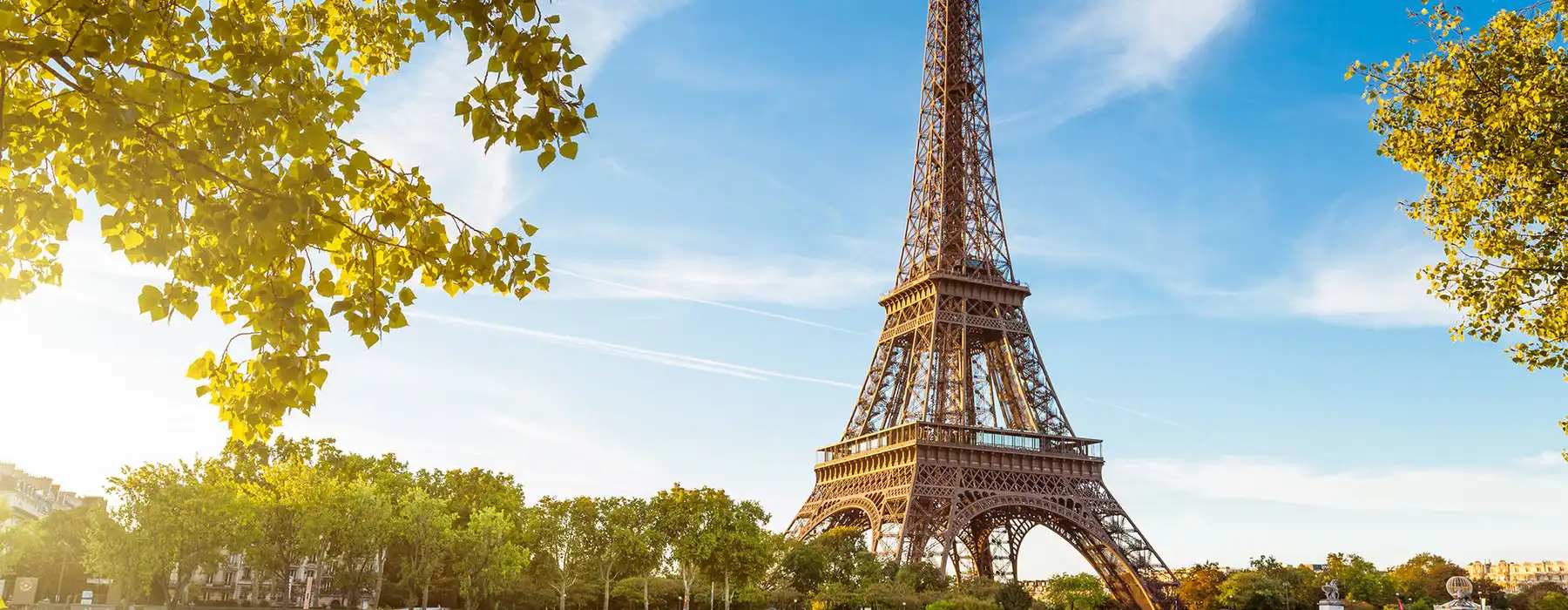
Car hire France
Save time and money. We compare the offers of car rental companies in France on your behalf.
- Free cancellation Up to 48 hours prior to the scheduled pick-up time
- Best price guarantee Have you found a better price? Let us know and we will make you a better offer.
- 24000+ pick-up locations Locations around the world

Car hire France
EasyTerra Car Hire France is an independent car hire comparison site. Our site compares prices from well-known car rental companies so that, as a customer, you can always reserve your car with us at a competitive rate.
Car rental offers in France
Whether you're looking for a small rental car or a station wagon for the entire family, we will always have a suitable vehicle at the lowest price. Below are some examples from our selection in France.

-
OK Mobility From£ 9 /day -
Goldcar From£ 9 /day -
Avis From£ 22 /day

-
Hertz From£ 9 /day -
Dollar Rent a Car From£ 14 /day -
Thrifty From£ 15 /day

-
Keddy By Europcar From£ 16 /day -
Europcar From£ 17 /day -
Avis From£ 20 /day

-
OK Mobility From£ 9 /day -
Goldcar From£ 10 /day -
Keddy By Europcar From£ 13 /day

-
OK Mobility From£ 9 /day -
Europcar From£ 17 /day -
Enterprise From£ 21 /day

-
Hertz From£ 16 /day -
Thrifty From£ 22 /day -
Dollar Rent a Car From£ 24 /day

-
Goldcar From£ 9 /day -
Budget From£ 18 /day -
Avis From£ 19 /day

-
Dollar Rent a Car From£ 14 /day

-
Budget From£ 20 /day -
Avis From£ 20 /day -
Goldcar From£ 43 /day

-
OK Mobility From£ 9 /day -
RentScape From£ 12 /day -
Goldcar From£ 14 /day

-
OK Mobility From£ 10 /day -
Goldcar From£ 11 /day -
Lutam From£ 19 /day

-
Keddy By Europcar From£ 14 /day -
Europcar From£ 17 /day

-
Goldcar From£ 10 /day -
RentScape From£ 12 /day -
Keddy By Europcar From£ 13 /day

-
OK Mobility From£ 10 /day -
Goldcar From£ 16 /day -
Avis From£ 28 /day

-
Hertz From£ 17 /day -
Avis From£ 20 /day -
Keddy By Europcar From£ 21 /day

-
RentScape From£ 11 /day -
Goldcar From£ 17 /day -
Sixt From£ 20 /day

-
Keddy By Europcar From£ 13 /day -
Europcar From£ 17 /day -
Advantage Rent a Car From£ 27 /day

-
Keddy By Europcar From£ 19 /day -
Alamo From£ 20 /day -
Goldcar Key'n Go From£ 22 /day

-
OK Mobility From£ 10 /day -
RentScape From£ 16 /day -
Sixt From£ 24 /day

-
Goldcar From£ 10 /day -
Sixt From£ 19 /day -
Flizzr From£ 19 /day

-
Keddy By Europcar From£ 17 /day -
Europcar From£ 20 /day -
Alamo From£ 22 /day

-
Goldcar From£ 11 /day -
RentScape From£ 19 /day -
Budget From£ 20 /day

-
OK Mobility From£ 11 /day -
Keddy By Europcar From£ 20 /day -
Europcar From£ 21 /day

-
Hertz From£ 20 /day -
Thrifty From£ 25 /day -
Dollar Rent a Car From£ 27 /day

-
OK Mobility From£ 11 /day -
Avis From£ 21 /day -
Lutam From£ 25 /day

-
Goldcar From£ 11 /day

-
Avis From£ 22 /day -
Alamo From£ 37 /day -
Enterprise From£ 38 /day

-
OK Mobility From£ 12 /day -
Goldcar From£ 15 /day -
RentScape From£ 18 /day

-
OK Mobility From£ 13 /day -
RentScape From£ 18 /day -
Alamo From£ 21 /day

-
Keddy By Europcar From£ 25 /day -
Avis From£ 28 /day -
Europcar From£ 32 /day

-
Goldcar From£ 15 /day -
Budget From£ 25 /day -
Goldcar Key'n Go From£ 41 /day

-
OK Mobility From£ 17 /day

-
Alamo From£ 28 /day -
Hertz From£ 29 /day -
Goldcar Key'n Go From£ 31 /day

-
RentScape From£ 18 /day -
Keddy By Europcar From£ 29 /day -
Avis From£ 30 /day

-
Goldcar From£ 20 /day -
Europcar From£ 26 /day -
Advantage Rent a Car From£ 40 /day

-
Goldcar Key'n Go From£ 28 /day -
Europcar From£ 42 /day -
Keddy By Europcar From£ 43 /day

-
OK Mobility From£ 17 /day

-
OK Mobility From£ 17 /day -
Budget From£ 32 /day -
Avis From£ 44 /day

-
Alamo From£ 27 /day -
National Car Rental From£ 31 /day -
Enterprise From£ 32 /day

-
Alamo From£ 21 /day -
Enterprise From£ 23 /day -
National Car Rental From£ 30 /day

-
Alamo From£ 21 /day -
Enterprise From£ 22 /day -
Sixt From£ 28 /day

-
Alamo From£ 28 /day -
National Car Rental From£ 32 /day -
Enterprise From£ 34 /day

-
Enterprise From£ 22 /day

-
Dollar Rent a Car From£ 23 /day -
Hertz From£ 24 /day -
Thrifty From£ 24 /day

-
Hertz From£ 28 /day -
Dollar Rent a Car From£ 37 /day -
Thrifty From£ 38 /day

-
OK Mobility From£ 17 /day -
RentScape From£ 39 /day -
Sixt From£ 41 /day

-
Enterprise From£ 25 /day

-
Budget From£ 35 /day

-
RentScape From£ 25 /day -
Sixt From£ 35 /day -
Avis From£ 46 /day

-
Enterprise From£ 26 /day -
Alamo From£ 26 /day -
National Car Rental From£ 30 /day

-
Hertz From£ 37 /day -
Thrifty From£ 40 /day -
Dollar Rent a Car From£ 50 /day

-
RentScape From£ 28 /day

-
Alamo From£ 30 /day -
Enterprise From£ 32 /day -
National Car Rental From£ 36 /day

-
Avis From£ 39 /day

-
RentScape From£ 27 /day -
Alamo From£ 33 /day -
National Car Rental From£ 34 /day

-
OK Mobility From£ 29 /day -
Alamo From£ 33 /day -
National Car Rental From£ 39 /day

-
Budget From£ 30 /day -
Europcar From£ 57 /day

-
RentScape From£ 29 /day -
Avis From£ 30 /day -
Sixt From£ 39 /day

-
Avis From£ 32 /day

-
Budget From£ 30 /day -
Europcar From£ 51 /day

-
Avis From£ 30 /day -
Europcar From£ 35 /day

-
Avis From£ 33 /day -
Hertz From£ 59 /day -
Sixt From£ 75 /day

-
RentScape From£ 31 /day -
Europcar From£ 67 /day -
Sixt From£ 68 /day

-
RentScape From£ 15 /day -
Hertz From£ 20 /day -
Thrifty From£ 23 /day

-
RentScape From£ 23 /day -
Hertz From£ 24 /day -
Thrifty From£ 27 /day

-
Hertz From£ 26 /day -
Thrifty From£ 27 /day -
Dollar Rent a Car From£ 29 /day

-
Thrifty From£ 23 /day -
Dollar Rent a Car From£ 23 /day -
Hertz From£ 26 /day

-
Thrifty From£ 24 /day -
Hertz From£ 24 /day -
Dollar Rent a Car From£ 27 /day

-
Hertz From£ 28 /day -
Thrifty From£ 29 /day -
Dollar Rent a Car From£ 30 /day

-
RentScape From£ 26 /day -
Sixt From£ 32 /day

-
Hertz From£ 32 /day -
Sixt From£ 49 /day -
Thrifty From£ 51 /day

-
RentScape From£ 27 /day -
Europcar From£ 66 /day

-
OK Mobility From£ 29 /day -
Alamo From£ 30 /day -
RentScape From£ 38 /day

-
OK Mobility From£ 31 /day -
RentScape From£ 62 /day -
Europcar From£ 63 /day

-
Alamo From£ 34 /day -
Avis From£ 42 /day -
National Car Rental From£ 48 /day

-
Alamo From£ 32 /day -
Hertz From£ 36 /day -
Thrifty From£ 41 /day

-
Hertz From£ 37 /day -
Thrifty From£ 40 /day -
Dollar Rent a Car From£ 50 /day

-
Hertz From£ 34 /day -
Thrifty From£ 35 /day -
Dollar Rent a Car From£ 44 /day

-
Sixt From£ 35 /day -
Europcar From£ 76 /day

-
Budget From£ 40 /day -
Europcar From£ 53 /day -
Hertz From£ 62 /day

-
Goldcar From£ 37 /day -
Budget From£ 39 /day -
Europcar From£ 51 /day

-
Lutam From£ 18 /day -
Advantage Rent a Car From£ 21 /day -
RentScape From£ 30 /day

-
Sixt From£ 30 /day

-
Europcar From£ 38 /day

-
Hertz From£ 35 /day -
Sixt From£ 36 /day

-
Sixt From£ 53 /day

-
RentScape From£ 46 /day

-
RentScape From£ 46 /day

-
Hertz From£ 55 /day

-
Hertz From£ 49 /day

-
OK Mobility From£ 10 /day -
Sixt From£ 24 /day -
Flizzr From£ 24 /day

-
OK Mobility From£ 11 /day -
Sixt From£ 25 /day -
Keddy By Europcar From£ 26 /day

-
Sixt From£ 25 /day

-
Goldcar From£ 13 /day -
Hertz From£ 34 /day -
Goldcar Key'n Go From£ 37 /day

-
Goldcar From£ 13 /day -
RentScape From£ 28 /day -
Goldcar Key'n Go From£ 39 /day

-
Dollar Rent a Car From£ 25 /day -
Thrifty From£ 26 /day -
Sixt From£ 41 /day

-
Goldcar From£ 14 /day -
Lutam From£ 26 /day -
Goldcar Key'n Go From£ 39 /day

-
OK Mobility From£ 16 /day -
Hertz From£ 25 /day -
Sixt From£ 25 /day

-
Goldcar Key'n Go From£ 27 /day -
Goldcar From£ 49 /day

-
Keddy By Europcar From£ 13 /day -
Europcar From£ 16 /day -
Avis From£ 18 /day

-
Keddy By Europcar From£ 13 /day -
Europcar From£ 17 /day -
Advantage Rent a Car From£ 27 /day

-
Keddy By Europcar From£ 14 /day -
Europcar From£ 17 /day

-
Keddy By Europcar From£ 13 /day -
Hertz From£ 18 /day -
Alamo From£ 18 /day

-
Goldcar From£ 14 /day -
Sixt From£ 28 /day -
Flizzr From£ 31 /day

-
Keddy By Europcar From£ 16 /day -
Europcar From£ 17 /day -
Avis From£ 20 /day

-
Keddy By Europcar From£ 15 /day -
Europcar From£ 19 /day -
Avis From£ 26 /day

-
Keddy By Europcar From£ 17 /day -
Europcar From£ 20 /day -
Avis From£ 28 /day

-
Alamo From£ 16 /day -
Dollar Rent a Car From£ 17 /day -
Thrifty From£ 17 /day
Popular cities in France
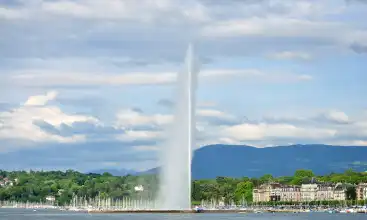
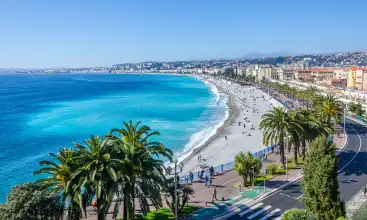
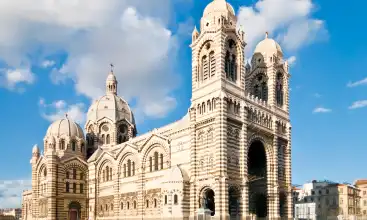
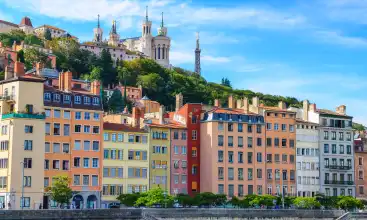
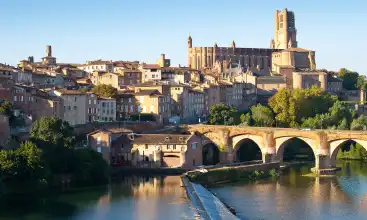
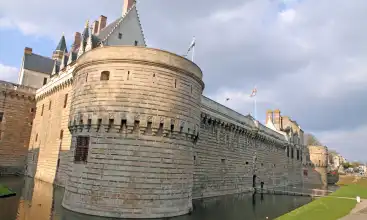
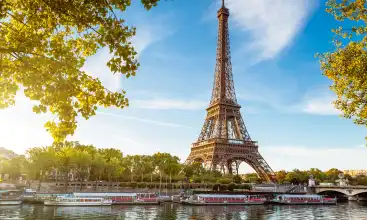
Popular rental locations in France
-
Car hire Geneva Airport (Switzerland)From
£ 27 /day -
Car hire Nice AirportFrom
£ 9 /day -
Car hire Marseille AirportFrom
£ 11 /day -
Car hire Lyon Saint Exupery AirportFrom
£ 11 /day -
Car hire Toulouse AirportFrom
£ 13 /day -
Car hire Nantes AirportFrom
£ 14 /day -
Car hire Bordeaux AirportFrom
£ 9 /day -
Car hire Bastia AirportFrom
£ 9 /day
Useful tips for a well-prepared trip
Which insurance should I choose, and what's the deal with the deposit? Read our articles with useful information and tips to ensure you choose the right rental car for you.
Car rental locations in France
EasyTerra Car Hire compares rental car prices at the following destinations

Location information for France
France is best explored by rental car. EasyTerra Car Hire has over 835 pick-up locations in France. This means there is always a pick-up location close to your destination.
Most popular car hire locations in France
Introduction
France is a large and beautiful country in Western Europe. Every year, millions of tourists go to France to enjoy the forests, the beaches, French art and fashion, delicious meals and pleasant temperatures. The country's long history has been well preserved, which means that you can admire many ancient castles, citadels and churches. France is one of the largest economies in the world.
History
The first inhabitants of what is now France were Celtic tribes, the Gauls. They moved to the region around 2500 BC. From 125 BC onward, the Romans dominated the area. They conquered Gaul (Land of the Celts) and the country was ruled by the Roman Emperor Julius Caesar. In 486, the Romans were finally defeated by the Franks led by king Clovis. The various Frankish tribes were united into one kingdom: France. Charlemagne was king of the Franks from 771 to his death in 814. During that period he conquered a large part of Western Europe. In 911, France was forced to give part of its lands to the Normans: Normandy. This was the only way to get them to end their raids.
In 1337, the war between France and England commenced. This war is known as the Hundred Year War. In actuality, the war lasted a little longer, until 1453. The English king Edward III claimed the French throne. The feeling of nationhood of the French began to develop when a farm girl led an army and defeated the English in Orleans and other places. This girl, Joan of Arc, was later called the maiden of Orleans. The English army was weakened in a number of places and eventually King Charles pushed the English back to Calais. The French were victorious.
The end of the sixteenth century saw the emergence of the Protestants (Huguenots). This led to a war between the Protestants and Catholics. In 1589, the protestant king Henri IV was smart enough to convert to Catholicism. He put an end to the religious wars by giving religious and political rights to the Huguenots. Extravagance and power characterized the French monarchy during the seventeenth century. The French king Louis XIV, also known as the Sun King, dominated throughout Europe. He expanded the castle of Versailles into a magnificent and enormous construction. King Louis XIV had absolute power.
In the eighteenth century, people began to question the regime. The French wanted greater equality. They wanted a liberal society with free trade, equal rights and the abolition of the class system. On July 14, 1789, the Bastille, Paris's state prison, was attacked. The French Revolution had begun. On August 26, 1789, the Declaration of the Rights of Man and Citizen was published. This declaration includes the following principles: Liberté (Liberty), Egalité (Equality) and Fraternité (Brotherhood). The class system was abolished and the king was executed. In 1792, France officially became a republic. In 1799, the revolution came to an end. Napoleon Bonaparte seized power and crowned himself first consul. In 1804, he crowned himself Emperor Napoleon. He was a despot who ultimately failed to expand the French Empire. However, the monarchy was restored.
It was only in 1871 that France once again became a republic. The end of the nineteenth century was characterized by the Industrial Revolution. The high point of this revolution, literally and figuratively speaking, was the construction of the Eiffel tower in 1889. In 1914, the Germans invaded France; this was the beginning of World War I. Germany lost this war. During the Second World War, Germany once again occupied large parts of France. In 1944, the Allied forces entered France and liberated the country. They were helped by the French General de Gaulle. The post-war period was a period of technological development and the emergence of the consumer society.
The 1950's were a period of uprisings, in the nation's colonies as well as the country itself. Politically speaking, France was very weak. President Coty was able to prevent a coup d'état by appointing Charles de Gaulle prime minister. In 1959, De Gaulle became the president of the Fifth Republic. He wanted Europe to become a large and united area.
After Georges Pompidou and Valérie Giscard d'Estaing, in 1981 the socialist François Mitterand was elected president of France. The results of the 1986 parliamentary elections, he had to work together with the conservative Prime Minister Jacques Chirac. Later, Chirac himself was elected president and in 2002 he was elected for a second term.
At the end of the twentieth century, there were fierce protests against France's nuclear tests. The country was boycotted and put under pressure in various ways. This did have an effect; France is now more responsive to international politics.
Society and Culture
France has a population of 63 million. The country has the third largest population of Europe. The French did not all descend from the same ancestors. There are descendants of the Celts, the Germanic tribes, the Normans and the Catalans. Since the nineteenth century, many new population groups have been added: Belgians, Italians, Spanish, Portuguese, Poles, Jews, Arabs, Berbers, Africans and Chinese. It is, therefore, a country with a very diverse population.
French is the only official language in France. This does not mean it is the only language that is spoken. There are various dialects. Minorities speak Breton (in Brittany), Occitan (in the South), Basque (in the Western Pyrenees), German (Alsace-Lorraine), Catalan (Roussillon), Italian (around Nice) and Corsican (on Corsica). The immigrants have also contributed to this multilingual society (for instance Chinese, African and Arabic).
Originally, France is a Roman Catholic country. Even today, some 80% of the population is Roman Catholic. Since the 1970's, France is a secular country: freedom of religion is a constitutional right. As a result of immigration, there are also Muslims living in France. Other minorities are protestant, Jewish and Armenian-Christian.
The French are known for their patriotism. They do their best to spread their culture. The French language plays an important role. Various elements of French culture are known all over the world. Examples are French architecture (Gothic churches and cathedrals), the ideas of French writers and philosophers from the period of Enlightenment and schools of art like Romanticism and Art Deco. As far as sports are concerned, the French are best known for their cyclists, football and jeu de boules. Education in France is of a high quality. The French are hospitable, friendly and proud of their country.
Political Situation
France is a republic. The country elects a president every five years. The president appoints the prime minister and the government. He commands the armed forces and has the authority to negotiate treaties. The president is both head of state and head of government, which means he is relatively powerful. The current president of France is Nicolas Sarkozy. He is a supporter of former president Charles de Gaulle. The current prime minister is Francois Fillon.
The parliament consists of two chambers: the Assemblé (with 577 members) and the Senate (with 331 members). Members of the Assemblé are elected every five years via district elections. Members of the Senate are elected by various councils: general, departmental and municipal councils. France is divided into departments. Clusters of departments make up the various regions. The regions are governed centrally from Paris.
France has always been a pioneer regarding the creation of the European Union. That's why it came as a blow to president Chirac when the French voted against the proposed European Constitution in the 2005 referendum.
In France, people are allowed to vote when they are 18. Women were only allowed to vote for the first time in 1944. For the last thirty years, two political parties have controlled the political landscape. They are the left-wing Socialist Party and the right-wing Front National.
Items that are currently high on the country's political agenda are (youth) unemployment, the immigration of above all Muslims, terrorism and foreign policy. A controversial item with regard to foreign policy is the war in Iraq. The United States and Great Britain invaded Iraq. France and Germany were vehemently against the invasion.
Economy
France is one of the largest economies in the world. The country is a member of the G8 (Group of Eight), and is one of the world's leading industrial nations. Agriculture plays an important role in the French economy. The large areas of fertile soil, the application of modern technology and the EU subsidies make this country the largest agricultural producer in the EU.
Important export products are meat, dairy and grains. Wine is also an important export product: France is the world's biggest wine exporter. In addition, machines, chemical products, metals, automobiles, airplanes and electrical appliances are important industries. The country imports crude oil, machines and equipment, food, chemical products and iron and steel products. France is to a large extent self-sufficient when it comes to energy.
France has many important industrial cities, located across the country: Metz and Strasbourg (North-East), Roubaix and Lille (North), Lyon and Grenoble (South-East), Marseille, Toulouse, Nice and Nâmes (South) and Bordeaux and Nantes (West). And finally, of course, Paris is also indispensable to the nation's industrial performance. This city is known for its luxury goods: perfume, fashion and jewelry. France trades above all with the EU, the United States, China and Japan.
In addition to industry and agriculture, tourism is also very important to the French economy. Every year up to 90 million people visit the beautiful French countryside. Tourists are found especially in cultural cities, near the sea and in rural areas. Tourism provides important revenues and employment.
Since 1999, the Euro is France's official currency.
Geography and Climate
France is situated in Western Europe. Its neighbors are Belgium, Luxembourg, Germany, Switzerland, Italy, Monaco, Andorra and Spain. It is located between the English Channel, the Atlantic Ocean, and the Mediterranean Sea. The total land area covers 543,965 square kilometers. The Mediterranean island of Corsica is also part of France. It is the most southerly part of the country.
France has a large diversity of landscapes. In the East and South of the country there are mountains. About a quarter of the country's surface is mountainous. In the centre and south of France, the Central Massif is located: a high altitude area consisting of mountains and plateaus. The Pyrenees in the south and the Alps and Jura in the east are young mountain ranges. At 4,810 meters, the Mont Blanc, in the Alps, is Europe's highest point.
The total coastline of France measures 3,427 kilometers. The coasts are very diverse. Near mountains the coasts are generally rocky. In other places there are dunes with sandy coasts.
France has an extensive river network. The most important rivers are the Loire (1,006 kilometers), the Rhone, the Garonne, the Rhine and the Seine. France's lowest point, at -2 meters, is located in the Rhone valley.
France's climate is almost as diverse as its landscape and people. France has three climate zones, due to the influence of the Atlantic Ocean and the Mediterranean Sea, and the presence of various mountain ranges. The main part of the country has a humid maritime climate. This means hot summers and cool winters. The southern coast of France has a Mediterranean climate with hot summers and mild winters. This is also the region where the tourists go to enjoy the sunshine. In the mountain areas, there is a land climate. The influence of the Atlantic Ocean is small here. As a result, the winters are cold and the summers warm.
Traffic and infrastructure
Most of France's rail network is state owned. The national railway company is called the Sociéteé National des Chemins de fer Français (SNCF). This network is focused especially on Paris, and it is fast and efficient. France also has high speed trains: Train à Grande Vitesse (TGV). These trains carry their passengers from Paris to other cities at a speed of 300 km/h. For the TGV, reservations have to be made in advance. Regular train tickets can be bought at travel agencies or at railway stations. In the large cities it is also possible to travel by metro. This is a fast and cheap way of getting around in a large, crowded city.
France is connected to England via the Channel Tunnel. A fast train runs through the 50 kilometers long tunnel, it also accommodates trucks. The train moves back and forth between Calais and Folkestone and London (England).
Travel by bus is not very common in France, nor is it very enjoyable. Buses predominantly serve the urban areas. A journey by bus is especially efficient when you need to cover a relatively short distance and there is no train connection. The bus company Eurolines offers bus services to France from various European cities.
Outside the main cities, you have to arrange your own transportation. The French road network, which in all is 8,000 kilometers long, provides access to all parts of the country. Expansions have already been planned. On many main roads you have to pay toll. The French drive on the right side of the road and distances are indicated in kilometers. To be allowed to drive a car, you need to be at least 18 years of age and in possession of a driver's license.
The airline companies are also largely in the hands of the government. Air France is one of the world's largest airline companies. Many major cities have airports. An important international airport is Paris Orly Airport (ORY). Companies like American Airlines, British Airlines and United Airlines fly to and from this airport. Other major French airports are Paris Charles de Gaulle Airport (CDG), Paris Beauvais Airport (BVA), Bordeaux Merignac Airport (BOD), Lyon Saint Exupery Airport (LYS), Marseille Provence Airport (MRS), Nice Cote d'Azur Airport (NCE), Strasbourg International Airport (SXB) and Toulouse Blagnac Airport (TLS).
The French waterways carry large freights. There are three waterways that are important to the transportation of goods: the Rhone, the Seine (between Paris and Le Havre) and the canalized Mozelle. Important ports are Bordeaux, Calais, Dunkerque, La Pallice, Le Havre, Marseille, Nantes, Paris, Rouen and Strasbourg. In France various new waterways are being built.
Food and Drink
France has a number of specialties that have made the French cuisine world famous. Especially its wines and cheeses are famous. It is no coincidence that the country is the world's biggest wine exporter. The country has more than ten wine regions that produce wine of the highest quality. Wine lovers must visit one of the country's numerous vineyards. France has 400 different kinds of cheese, with a huge variety in flavor and appearance. In the north of the country, many dairy products are used: cheese, cream, butter, etc. More to the south, the French cuisine is characterized by the use of olive oil, herbs, mushrooms, duck fat and goose liver.
There are many high class restaurants where you can get acquainted with the French 'haute cuisine'. 'Haute cuisine' distinguishes itself from the 'cuisine bourgeois' by the use of fresh produce, special combinations and refined dishes. There are also many cozy bistro's that serve simpler meals.
Accommodation
France offers a wide variety of accommodations to tourists. There are many camping facilities in a wide range of price and quality. You can choose a small, simple camping near a farm or a luxury camping that has lots of amenities and facilities. Also, it is possible to spend the night in a French castle, a unique way to enjoy this beautiful country.
Time zone
France is in the GMT+1 time zone, the same time zone as the The Netherlands and Belgium.
External Sources
For more information about France, we recommend Google and the following sources:
Practical information
-
CurrencyEuro
-
Driving directionRight
-
City speed limit50 km/h
-
Freeway speed limit90 km/h
-
LanguageFrench
-
Popular car categoryEconomy
What most people want to know
The following questions and answers are a selection of the most popular questions. If you do not find the answer to your question, have a look at the Frequently Asked Questions page or contact us.
- National Car Rental
- Budget
- Goldcar Key'n Go
- Thrifty
- Enterprise
- Rent a car
- Europcar
- Sixt
- Sicily by Car
- Avis
- Hertz
- Alamo
- OK Mobility
- Flizzr
- Dollar Rent a Car
- Keddy By Europcar
- Lutam
- Goldcar
- FireFly Car Rental
- Rhodium Car Rental
- InterRent
- RentScape
- Red Spot Car Rental
- ADA
- ADA Corsica
- RPS Luxe
- AbsoluteCar
- CITROEN
- liigu
- wheego
- AVIS Car-Away
- Nextcar
- Unirent Car Rental
- Costa Rent
- McRent
- Elite (Luxury)
- Carwiz rent a car
- Your Rent
- Edel & Stark
- Drivalia
- First Car
- Apollo Car Rental
- Advantage Rent a Car


